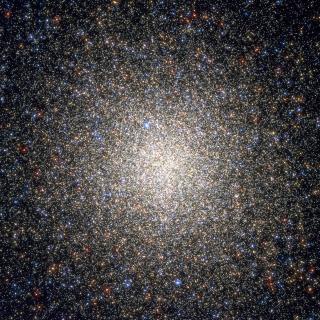Bibcode
Ferraro, F. R.; Lanzoni, B.; Raso, S.; Nardiello, D.; Dalessandro, E.; Vesperini, E.; Piotto, G.; Pallanca, C.; Beccari, G.; Bellini, A.; Libralato, M.; Anderson, J.; Aparicio, A.; Bedin, L. R.; Cassisi, S.; Milone, A. P.; Ortolani, S.; Renzini, A.; Salaris, M.; van der Marel, R. P.
Bibliographical reference
The Astrophysical Journal, Volume 860, Issue 1, article id. 36, 13 pp. (2018).
Advertised on:
6
2018
Journal
Citations
74
Refereed citations
69
Description
The parameter A +, defined as the area enclosed between the
cumulative radial distribution of blue straggler stars (BSSs) and that
of a reference population, is a powerful indicator of the level of BSS
central segregation. As part of the Hubble Space Telescope UV Legacy
Survey of Galactic globular clusters (GCs), here we present the BSS
population and the determination of A + in 27 GCs observed
out to about one half-mass radius. In combination with 21 additional
clusters discussed in a previous paper, this provides us with a global
sample of 48 systems (corresponding to ∼32% of the Milky Way GC
population), for which we find a strong correlation between A
+ and the ratio of cluster age to the current central
relaxation time. Tight relations have also been found with the core
radius and the central luminosity density, which are expected to change
with the long-term cluster dynamical evolution. An interesting relation
is emerging between A + and the ratio of the BSS velocity
dispersion relative to that of main sequence turn-off stars, which
measures the degree of energy equipartition experienced by BSSs in the
cluster. These results provide further confirmation that BSSs are
invaluable probes of GC internal dynamics and that A + is a
powerful dynamical clock.
Related projects

Milky Way and Nearby Galaxies
The general aim of the project is to research the structure, evolutionary history and formation of galaxies through the study of their resolved stellar populations, both from photometry and spectroscopy. The group research concentrates in the most nearby objects, namely the Local Group galaxies including the Milky Way and M33 under the hypothesis
Martín
López Corredoira